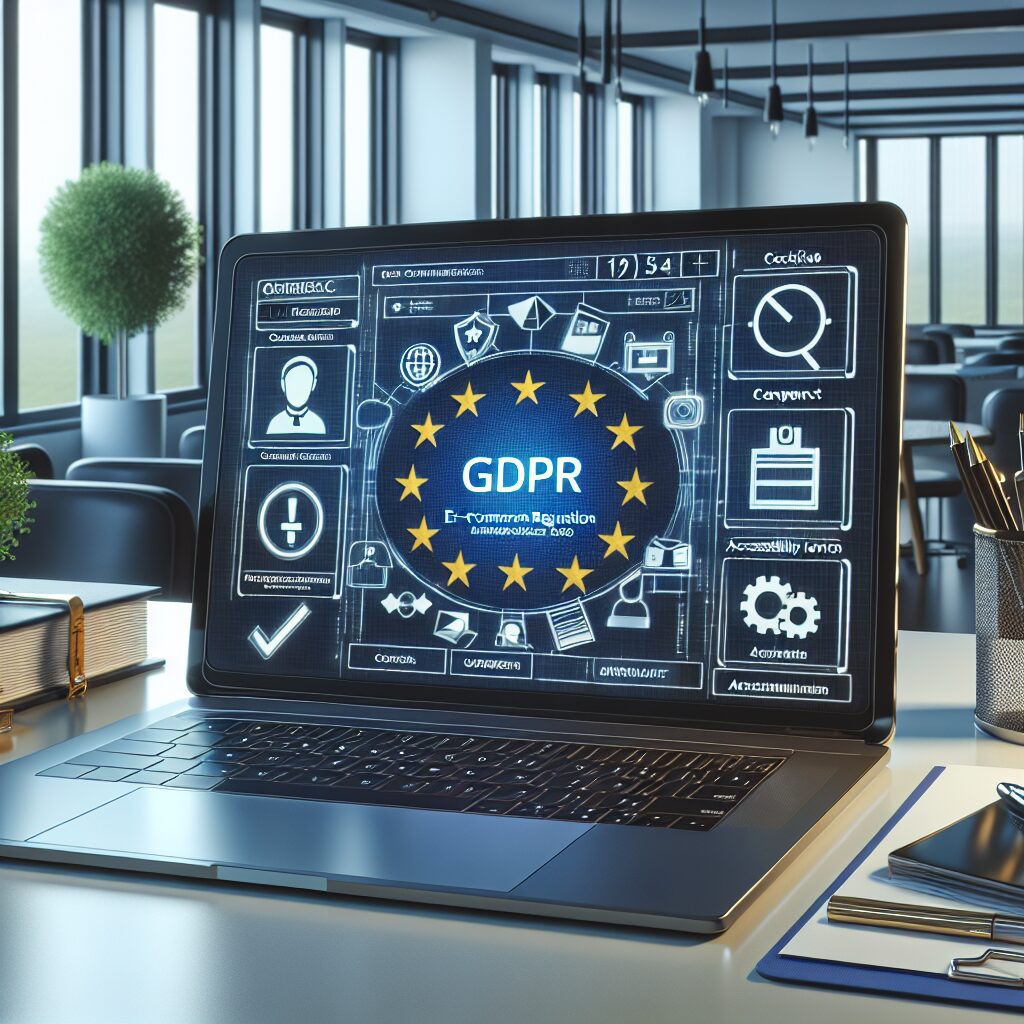About eldris
At Eldris, we automate SEO, multilingual site expansion, and EU compliance for brands scaling across Europe. Our AI-powered platform handles everything from content publishing to regulatory docs—so you don’t have to.
In This Article
- Traditional SEO agencies are being replaced by cost-effective, agile solutions.
- AI-powered platforms provide compliance, multilingual support, and real-time insights.
- Freelancers offer adaptability, niche specialisations, and direct collaboration.
- DIY SEO tools are powerful but require expertise and internal training.
- Hybrid models balance technology, talent, and oversight for sustainable growth.
- Always vet platform integrations, data practices, and localisation capabilities.
- Case studies show measurable success from switching to SEO agency alternatives.
- Budget strategically—consider ROI timelines, training costs, and hidden fees.
- Prepare for multilingual SEO and evolving EU digital compliance regulations.
- The future favours businesses that embrace flexible, intelligent SEO solutions.
Why European Businesses Are Seeking Alternatives
Cost and Complexity of Traditional SEO Agencies
The digital marketing world is undergoing a shift in 2025, and European companies are increasingly exploring SEO agency alternatives. Established SEO agencies have long dominated the landscape, often promising top search engine rankings at steep prices. Their costs are not just monetary—complex onboarding processes, long-term contracts, and slow adjustment periods can drain both time and resources. Especially for small to medium-sized enterprises (SMEs) in competitive EU markets, these agencies can appear out of reach. Businesses in Germany, France, the Netherlands and beyond have voiced concerns about the lack of transparency and inconsistent ROI from traditional partners. As digital transformation continues to accelerate, cost-efficiency and agile execution are now taking precedence in strategic planning. Moreover, companies must now comply with layered European regulations, such as GDPR and digital accessibility standards, adding to this complexity. Consequently, these factors are accelerating the search for SEO agency alternatives that provide clarity, flexibility, and scalability for 2025 and beyond.

Rise of AI-Powered SEO Platforms
Key Features and Benefits for EU Markets
Artificial intelligence is quickly redefining the way European companies approach search optimisation. AI-powered SEO platforms provide a compelling alternative to traditional SEO agencies, combining automation with intelligent content insights to deliver faster, more data-driven results. These platforms can audit websites, generate SEO-rich content, analyse competition, and localise for multiple European languages within seconds. This is particularly significant in multilingual regions, such as Belgium and Switzerland, where manual optimisation can be resource-intensive. With built-in compliance monitoring and contextual keyword recommendations, AI SEO tools lower the barrier to entry for SMEs who previously lacked access to robust SEO services. Capability is another advantage: predictive analytics, automated schema markup, and natural language generation help businesses rank higher faster. For industries facing rapid change—such as fintech, e-commerce, and SaaS—AI platforms introduce unmatched agility. These benefits are not speculative; real-world case studies (explored later in this guide) illustrate how start-ups and established brands have pivoted successfully from agencies to platform-driven SEO strategies.
“AI SEO platforms have democratised access to high-impact search visibility, levelling the playing field for businesses of all sizes across Europe.”
Freelance SEO Talent Across Europe
Freelancers are another potent alternative gaining traction among European firms dissatisfied with traditional SEO agencies. The freelance economy has matured considerably, supported by platforms like Upwork, Malt, and PeoplePerHour, where thousands of search specialists now offer their services. Unlike agencies, freelancers offer bespoke SEO strategies tailored to each client’s niche, goals, and budget. You gain direct access to the person optimising your site, improving communication and project speed. Notably, freelance SEO talent in countries like Poland, Spain, and Portugal often offers competitive pricing without compromising on quality. Many freelancers specialise in localisation, structured data, backlink strategies, or technical SEO, allowing you to select exactly the expertise you require. The flexibility to scale up or down based on campaign needs makes freelancers ideal for businesses with fluctuating demands. Of course, vetting talent requires careful due diligence. Always request portfolio samples, audit their certifications, and verify experience with European audiences. For guidance on building custom teams using freelancers, read more at Learn more about European SEO Strategies & Automation.
DIY SEO Tools: Pros and Cons
Do-it-yourself SEO platforms such as Moz, SEMrush, SE Ranking, and Ahrefs have grown shockingly popular among European marketers looking to cut out the middleman. These tools offer dashboards for keyword tracking, backlink analysis, competitor benchmarking, and SERP monitoring—all without requiring an SEO agency. The pros are evident: DIY tools are cost-effective, transparent, and offer unparalleled user control. They are perfect for in-house teams who prefer hands-on experimentation. However, they come with a learning curve. Without internal SEO expertise, businesses risk misinterpreting the data and allocating resources inefficiently. Moreover, calibration for European markets, including language preferences and search engine preferences (e.g., Seznam in the Czech Republic), requires vigilant adaptation. Despite these challenges, countless companies report improved SEO performance once internal staff are trained adequately on these platforms. Consider blending DIY tools with light consultancy for the best of both worlds.
Compliance and Multilingual SEO Challenges
Another major factor driving the adoption of SEO agency alternatives in Europe is the complex regulatory and linguistic landscape. From GDPR to the EU’s 2025 Digital Markets Act, compliance is non-negotiable. Traditional SEO agencies may unintentionally overlook locality-specific rulings, leading to serious penalities or visibility loss. On the other hand, platforms designed with European compliance in mind build legal checks directly into keyword reporting and content generation workflows. For multilingual SEO, tools like Weglot and Transifex integrate seamlessly with CMS systems to ensure consistent brand messaging across language variants. SEO success in Europe requires keyword localisation, not mere translation. For instance, a German keyword strategy will differ dramatically from a Spanish one, even in the same industry. Businesses must ensure their chosen alternative solution understands regional nuance. For further insights on multilingual SEO management, visit Alternative approaches to professional SEO.
Comparing SEO Automation Platforms
Choosing the right SEO automation platform is increasingly vital for companies moving away from traditional agencies. Leading platforms such as SurferSEO, Frase, and MarketMuse utilise machine learning to synchronise keyword trends, generate outlines, and optimise existing content with extraordinary efficiency. SurferSEO, for example, analyses top-performing pages to recommend specific word counts, headers, and keyword density, helping writers match or exceed competitors. Tools like Scalenut offer real-time content scoring, keyword intent analysis, and paragraph optimisation. Many of these platforms include collaborative features for team use, making them perfect for distributed European teams. Automation not only saves time but ensures consistency across multiple projects and languages. However, platforms differ in nuances like data freshness, UI accessibility, and localisation support. Always prioritise tools with robust support for European search trends and multilingual content structures. For a detailed side-by-side breakdown of features, performance, and cost, we recommend visiting Read a related article.
How to Vet Alternatives for Your Business
Once you’re aware of the types of SEO agency alternatives, the next step is vetting them effectively. Begin with clarity—define your SEO goals, whether that’s increasing regional traffic in France or expanding into Scandinavian markets. Next, assess scalability. Can the freelancer or platform grow with your traffic and localisation needs? Thirdly, request proof of performance. Ethical freelancers and software vendors will show analytics, testimonials, and case studies. Also examine support responsiveness. With DIY tools or automation platforms, prompt customer service can be the difference between resolution and prolonged ranking dips. Be meticulous with contract terms and data policies, especially when working across EU borders. Finally, ensure integrations match your existing systems, whether that’s WordPress, Magento, or a middleware CRM. A misaligned tech stack can cripple even the most promising SEO alternative.
Case Studies: Brands That Switched Successfully
Across Europe, bold brands have already reimagined their SEO strategy with notable success. A startup fashion label in Milan once struggled with an overpriced agency and little ROI. Within six months of switching to an AI SEO content writer and local freelancers, their organic traffic increased by 178%. In Germany, a B2B SaaS provider used MarketMuse alongside internal writers to target long-tail keywords and slash dependency on agencies. By prioritising in-house control, they reduced costs by 45% while doubling monthly traffic. Another example from Finland involved an eco-friendly D2C brand pairing SEMrush with freelancers fluent in Swedish and Finnish to enhance regional visibility. Their exacting focus on multilingual localisation led to a 300% lift in monthly site visitors. These case studies demonstrate that with the right tools and talent, switching away from SEO agencies can yield tangible, scalable success. For industry-specific success templates, visit Automated SEO solutions for businesses.
Budget Planning and ROI
One of the most compelling advantages of SEO agency alternatives is cost efficiency. Agencies often charge monthly retainers upwards of €3000–€10,000, making sustained investment difficult for mid-sized firms. AI-driven platforms, by contrast, average between €60–€300 per month depending on tier. Freelancers vary from €30 to €100 per hour—you only pay for the work performed. DIY tools typically operate on modular pricing, allowing you to scale features as your business grows. ROI is typically faster with alternatives because many enable real-time edits, intelligent iteration, and campaign-specific allocations. However, budgets should account for learning curves, staff training, and possible third-party tool integrations. If your business lacks internal capacity, hybrid models may be most effective—such as combining a baseline automation tool with quarterly auditing from a consultant. This balances costs with performance oversight. Always establish key performance indicators from the outset to track growth and refine strategy accordingly.
Your European SEO Strategy for 2025
In crafting your SEO roadmap for 2025, consider merging strategy and technology in a way that aligns with business objectives and regulatory frameworks. Begin with a content audit to identify legacy pages, compliance risks, and keyword gaps. Use AI tools to supplement research and ideation, but retain nuanced human review for tone, culture, and search intent. Prioritise mobile-first indexing, Core Web Vitals, and semantic markup to increase site authority. For pan-European growth, prepare separate keyword clusters per language group. Leverage schema data to boost rich results and voice search rankings. Also build localised backlinks through EU-specific directories and trade press. Hybrid SEO models remain the most stable—using automation for efficiency, freelancers for customisation, and occasional consultancy for oversight. This triad offers both agility and depth as your digital presence expands across European borders. By selecting intelligent, strategic SEO agency alternatives, your brand remains future-forward and search resilient.
The Future of Affordable SEO in the EU
Europe is on the cusp of an SEO revolution. With agencies under pressure to justify high fees, businesses are turning towards precise, results-oriented alternatives. AI platforms are becoming smarter, mirroring human nuance and local context. Freelancers grow ever more specialised, offering niche insights unmatched by broader agencies. Automation tools continually evolve with each Google update, ensuring your SEO approach remains sustainable. Regulatory measures will soon demand more from SEO providers, and only adaptive, transparent models will endure. By 2026, it’s likely that hybrid SEO models will form the standard across European industries. Businesses who start that transition today will have a significant first-mover advantage. When adopted strategically, SEO agency alternatives not only reduce costs—they empower your marketing teams with ownership, data, and growth. Now is the time to shift.
Conclusion: How to Choose the Right SEO Partner in 2025
[CONCLUSION_CONTENT]
Great guide on seo-agency-alternatives-eu-2025 – Community Feedback
What are the most effective alternatives to traditional SEO agencies in the EU?
Instead of hiring expensive agencies, businesses can use AI-powered SEO automation platforms, hire vetted freelancers, or leverage DIY SEO tools to efficiently scale their European search presence.
Is using an SEO automation tool in Europe more effective than agencies?
SEO automation tools offer faster, scalable, and data-driven optimisation at a lower cost, making them an increasingly popular and effective choice for brands expanding across EU markets.
Can AI replace human-led SEO for European websites?
AI-driven SEO solutions now handle multilingual content, local compliance, and technical optimisation, reducing the need for costly manual agency work and delivering consistent results across Europe.







